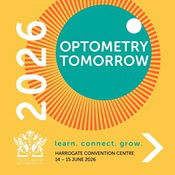Professional Matters Optometry & Dispensing
FODO responds with an update on eye care reforms in Wales
FODO responds with an update on eye care reforms in Wales

On the 28 September FODO published their initial response to the Welsh Government plans for transforming primary eye care services.
Last week they published an update which shares concerns members in Wales have raised with us and actions we have taken in response.
They welcomed news that WG planned to address chronic underfunding of the NHS sight test and invest more in clinical services provided in primary eye care settings. Together these had the potential to prevent avoidable sight loss.
In their first statement they raised some initial concerns about WG proposals, including:
- Negative impacts of cutting patient benefits to part fund planned reforms, especially during a cost-of-living crisis
- Risk to essential domiciliary eye care services
- Uncertainty about what will be included within clinical manuals, making it difficult for providers to understand the full scope and sustainability of WG plans.
Since then the WG has confirmed its plans, and many FODO members have been in touch to express concerns about WG fixing prices for services that have not yet been defined, the risk that patients who depend on means-tested benefits will be worse off when accessing essential vision correction, and of a significant reduction in domiciliary capacity which will worsen eye health outcomes.
FODO have shared these concerns with colleagues at Optometry Wales (OW) and offered FODO and FODO member support to minimise unintended consequences of planned reforms.
At this stage OW has confirmed to FODO:
- Level 1 GOS will not require any additional optometrist time to deliver. Hence, increased funding is to help practice sustainability and address longstanding underfunding of the GOS sight test.
- Level 2 GOS will also not require significant new investment of optometry time per clinical visit. That increase in fees is so that WG can gain more access to capacity out of hospital and closer to home. Clinical manuals will therefore not add complex or additional burdens on practices.
- WG will not cap or otherwise restrict the number of practices which can offer Level 3-5 GOS.
- OW, like FODO and FODO members, remains opposed in principle to cutting patient benefits. OW has confirmed it has no negotiating role here as benefits are in the gift of Welsh Government and this was a WG initiative.WG has decided to cut this patient benefit in awareness that this will mean people on means tested benefits will have less access to essential vision correction and might have to pay out of pocket to access similar standards of spectacles to those they were able to access before these reforms. OW also understands why sector bodies and providers might want to directly challenge this on the basis of increasing inequality in access in Wales.
In addition to this, the sector Domiciliary Eye Care Committee (DEC) has met with OW to discuss the potential impact of reforms on the sustainability of these essential services. DEC remains committed to working with OW to help avoid systems failure and harm to patients who are by definition some of the most vulnerable in terms of health, disability and income.
We will bring your more comments as received.

























